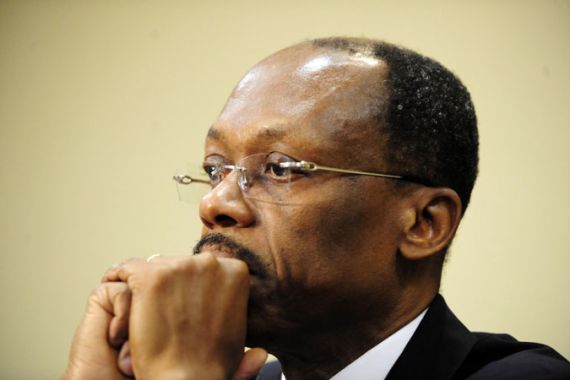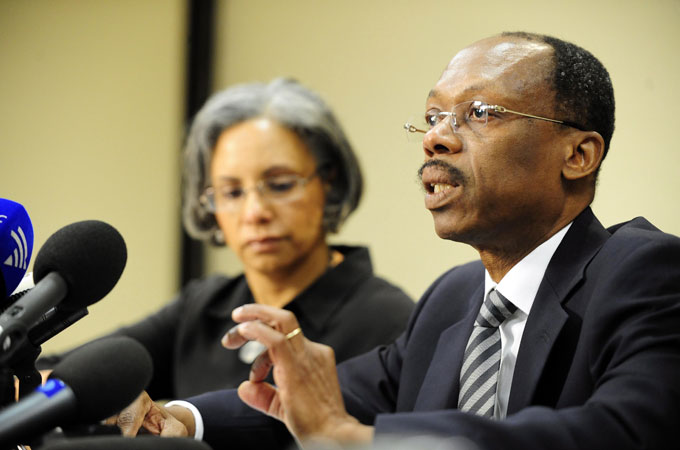Haiti allows ex-president’s return
Jean-Bertrand Aristide, who was Haiti’s first democratically elected leader, has been in exile for seven years.

 |
| Haiti’s government is ready to issue a new passport to Jean-Bertrand Aristide, in exile for seven years [EPA] |
Haiti’s government has said it was ready to issue a new passport to Jean-Bertrand Aristide, former president, to would allow him to return to his country after almost seven years in exile in South Africa.
“The government will give assurances that as soon as it receives such a request, it will be swiftly granted,” the information ministry said in a statement on Monday.
“It is my understanding that the Council of Ministers has agreed to issue a diplomatic passport to Aristide befitting his position as a former president of the republic,” said Ira Kurzban, Aristide’s Miami-based lawyer.
“I kindly request that the government of the Republic of Haiti initiate dialogue with the government of the Republic of South Africa to ensure Aristide’s immediate return,” said Kurzban.
Kurzban, on Monday formally requested the diplomatic passport in a letter sent to Haiti’s Minister of Foreign Affairs Marie-Michele Rey and Minister of the Interior Paul Antoine Bien-Aime.
But the Interior Minister said in an official letter, sent later on Monday that no passport had been requested. “It appears that to date, neither ministry had received a request for issuance or renewal of passports from the former President Jean-Bertrand Aristide,” he wrote.
‘Aristide in South Africa’
Kurzban also confirmed that Aristide was still in South Africa amid mounting rumors the former leader was already in Cuba waiting to return home.
His lack of a valid passport has long been given as a principal technical reason impeding his return. Haitian officials say that he would not need a passport to re-enter Haiti, but could need one to pass through other countries on his way back from his exile in South Africa.
Bien-Aime’s letter was sent to media in two versions, one French and the other Haitian Creole. The French version says: “The Government of the Republic gives its assurance that as soon as it is made, such a request will be honored promptly.”
The Creole differs slightly: “The government gives a guarantee that if President Aristide requests a passport, it will respond to him quickly.”
Fritz Longchamp, president Rene Preval’s chief of staff, said, “The French version is more accurate than the Creole.”
Ready to return
Aristide, who was Haiti’s first democratically elected leader, said earlier this month he was ready to return to his homeland “today, tomorrow, at any time”.
Aristide is a former priest and liberation theologist who rose to become Haiti’s first democratically elected president. He was overthrown in a coup, restored to power, then ousted again in 2004. His return was forced by the threat of a US military invasion; debate has raged for years over what role the US played in his departures.
Major western aid donors to Haiti like the United States have been wary about his possible return to the poor, earthquake-battered and volatile Caribbean nation.
He remains very popular at home and some fear he could mobilize supporters who could disrupt an already confused ongoing presidential and legislative elections process.
Haiti is embroiled in a deepening political crisis over flawed November presidential elections, which international monitors concluded were tainted by fraud and irregularities.
Aristide’s Fanmi Lavalas party was banned from taking part in the November elections.
Aristide’s plans to return home follows the controversial return to Haiti on January 16 of former dictator Jean-Claude “Baby Doc” Duvalier. Duvalier, 59, now faces charges in Haiti of corruption, theft and crimes against humanity.